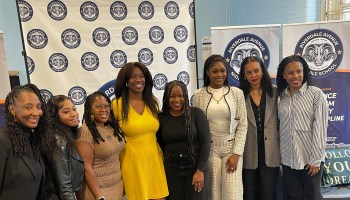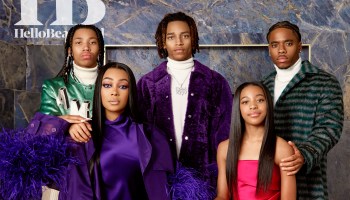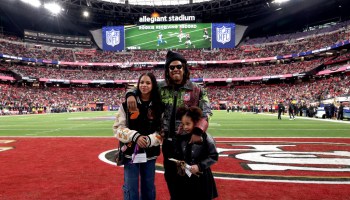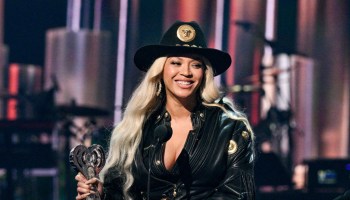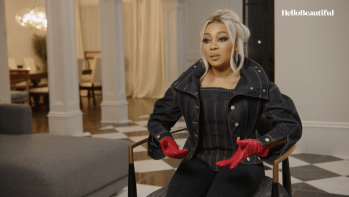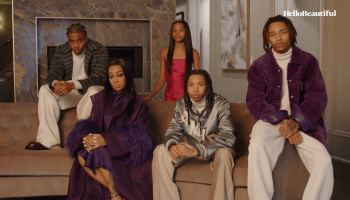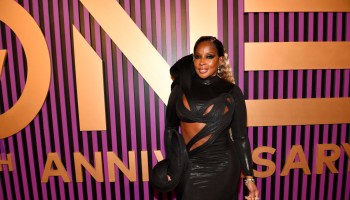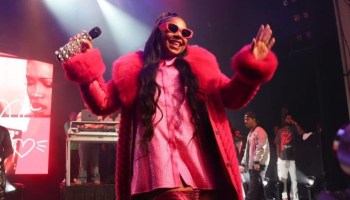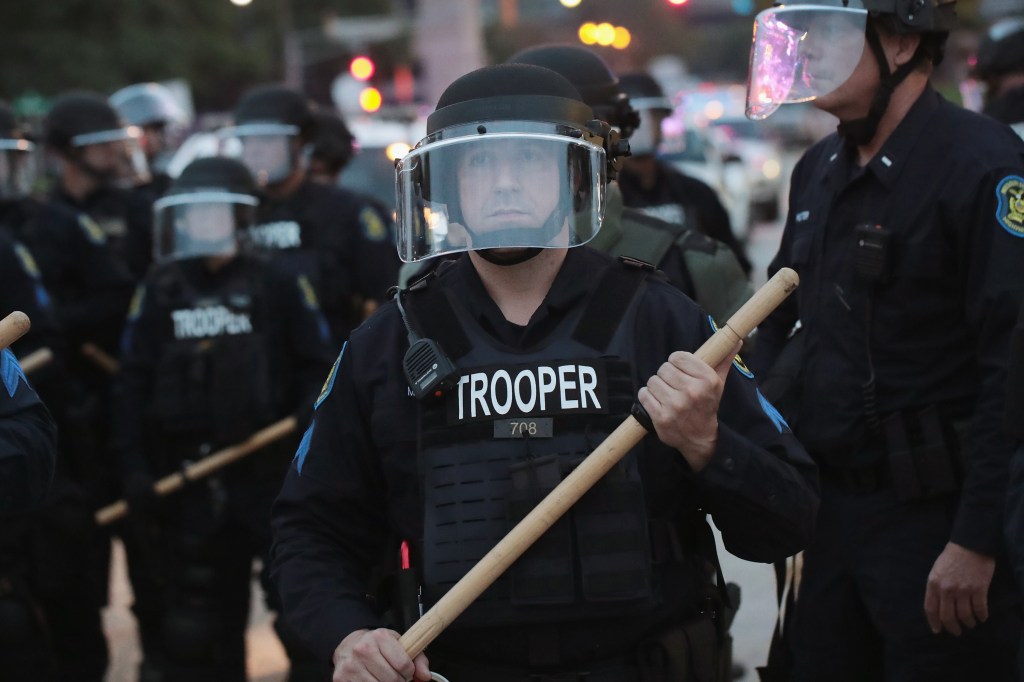
Source: Scott Olson / Getty
It’s been a profoundly difficult few days for Black Americans, not only with the news of our people under attack, but when the blood of our brothers and sisters is literally flowing on our timelines.
It seems impossible to scroll through your Facebook timeline, Twitter feed, and news alerts without being bombarded with images of Black and brown men, women and even children being killed at the hands of police and civilians all over the country.
It’s understandable then, how many of us are tired. How many of us are drowning in grief. How many of us are broken inside. I know when the news of the killings of Alton Sterling and Philando Castile broke, my initial reaction was, “I just can’t watch another one.”
Almost immediately afterward, I felt an extreme sense of guilt. “I had to watch,” I told myself. I had to swallow the fear that my grief and unease would suffocate me. After all, didn’t I owe it to my people? To their families?
And so I watched. I shared. I cried. And then I remembered.
I remembered that, in America, watching a Black person be killed is not enough to spark a change.
Indeed, our murders were, for decades, a spectators’ sport.
I remembered the first time I saw an image of a lynching. I was in my seventh grade history class. It was seared into my memory — a man’s body hanging like strange fruit. And yet, still more gruesome and terrifying than his body were the smiles and wild eyes of the White men standing around him, intoxicated with twisted thrill.
And then I remembered, in a tidal wave of grief and outrage, that videos, photos, and live streams won’t save us from White patriarchy. Scenes of death, of terror, of pain, and of violence can’t save us in a country that thinks we deserve it.
I remembered the image of Emmett Till — the 14-year-old Chicago boy who was beaten, murdered, and tossed in a river in 1955 for allegedly whistling at a White woman. His mother courageously demanded his casket to be open, his mutilated face making front-page news. Her actions, which likely broke her apart inside, brought about anger from the public. Tragically, the media coverage and fury did not deliver justice.
I remembered Eric Garner, who was choked to death on a busy street while screaming “I can’t breathe.” We were sure the footage would mean the cops would have to pay. But they did not.
I remembered Walter Scott, the man who was gunned down in an open field in South Carolina. His back to cops, he was shot and killed, and it was all caught on video. His death brought pain. But it did not bring change to America.
I remembered the brutish cop who assaulted a 15-year-old girl in her bikini after a pool party in McKinney, Texas. She screamed for her mother, writhing in discomfort at this huge man on top of her half-naked body. The video brought more suffering. It did not bring justice.
I remembered Sandra Bland’s arrest, Rodney King’s beating, Mike Brown’s body in the street. I remembered cops who did not spend any time in jail.
I remembered Black pain.
We see the evidence daily. Try as we may to escape it, we have all likely seen the videos of Alton Sterling’s fatal shooting at close range, all while he was subdued on the ground. We’ve likely seen the video, or at least the screenshot of a bloodied, lifeless Philando Castile in his car, his girlfriend pleading with him to “stay with her,” his four-year-old daughter trying to console her mother.
If you find you can’t watch them anymore, then I implore you to be at peace with that. So many of us need to dig within ourselves to find the strength to support our people. To march, to write, to demand, and to uplift. We don’t need to watch their killings to do that effectively.
To be clear, dashcam and body camera videos are often said to be of critical importance for courtrooms and trials. Perhaps they play a role in changing the minds of judges and juries. But if the track record of convictions is any indication, it seems they do not.
We need social media and we need the internet in today’s civil rights movement. It is how we galvanize and come together to demand change. It is how we expose the lies of corrupt public servants and it is how we hold them accountable. But seeing bloodied and lifeless bodies and bearing witness to the last, precious moments of life before they are stolen away does not seem to be helping.
And so, I ask you to remember that behind the videos, even when shared with the best intentions, are people with families, who can’t heal or escape or pick up the pieces of their lives when their feeds are bombarded with chilling images of their loved ones’ last moments.
And, while our grief can’t compare to the victims’ families, they are a part of our community. We remember them. We mourn them. We march for them. And we don’t need to see their blood to know that their Black lives matter.
PHOTO CREDIT: Getty
DON’T MISS:
Minnesota Cop Fatally Shoots Black Man During Routine Traffic Stop, Aftermath Caught On Livestream
Jesse Jackson, Zendaya, Vivica A. Fox & More React To The Senseless Killing Of #AltonSterling
Officer Nakia Jones Calls Out Cops Who Killed Alton Sterling: ‘You Ought To Be Ashamed Of Yourself’











